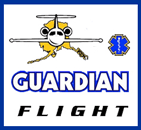 By KEVIN SITES Yahoo! News December 01, 2005
Zirar Abdullah poses his young son and daughter on the playground spinner, then snaps their picture in the perfectly diffused golden light. "I come here with my family every Friday," Abdullah says. "I feel very secure. I feel free to do what I like." It seems very much the picture of tranquility, this public park in the city of Erbil in predominantly Kurdish northern Iraq. But the setting becomes even more remarkable with the revelation of its history. The grounds on which these people now enjoy a leisurely afternoon was once the headquarters of the Iraqi Army's 5th Legion, placed here by Saddam Hussein to maintain control over the rebellious Kurds. After the 1991 Gulf War, Saddam Hussein was compelled by the peace agreement to withdraw his forces from most of northern Iraq, giving the Kurds de facto autonomy over their territory.
It not only allowed the Kurds to turn this former Iraqi base into a public park, but also allowed them to create a society where, unlike the rest of Iraq, a diversified economy and democratic institutions were given a chance to develop. The Kurds not only have survived as a people but also protected their culture, despite Saddam's reign of oppression against the population. During a 1988 campaign known as Anfal, Saddam issued a systematic series of attacks on Kurdish villages in the north, leading to the disappearance and presumed death of 182,000 people. In the single worst attack, at least 5,000 people were killed in a chemical weapons attack on the town of Halabja. Today northern cities like Erbil and Sulaymaniyah are Iraq through the looking glass: relatively peaceful, secure and in the full throes of an economic boom. They are the polar opposite of much of the rest of the country. Everywhere you look, building is under way. In downtown Erbil construction has begun on what is being promoted as the largest shopping mall in Iraq. Flights from cities like Frankfurt, Dubai and Amman now arrive at Erbil's newly opened international airport. Workers are busy expanding a highway that runs between Erbil and Sulaymaniyah. Large western-style residential developments are being created by the dozens with names like "Dream City," offering swimming pools and tennis courts - all at western-style prices. At a restaurant in downtown Erbil, 26-year-old Sherwan Shekahani says business couldn't be better. "I feel like people are paid better now. They have better salaries so they go out to eat more often," he says. And the good times have created job opportunities for those from less peaceful areas. Nawzad Eado left Mosul two months ago, he says, after his cousin, who owned a liquor store, was shot dead by terrorists. He also works in an Erbil restaurant and is planning on staying. "It's much more peaceful here," Eado says. "You don't have to fear the daily violence." But part of what is fueling the huge economic growth, people say, is also fueling widespread corruption. Since it is seen as more stable than the rest of the country, northern Iraq is attracting much more foreign investment from the United States, Europe and even regional neighbors like Iran and Turkey - a nation considered a longtime nemesis by the Kurds. The Kurdish regions of northern Iraq are controlled by two main political parties, the Kurdish Democratic Party (KDP), dominant in Erbil and the north along the Turkish border, and the Patriotic Union of Kurdistan (PUK), dominant in Sulaymaniyah and areas to the eastern border. These main political factions are also the gateway to investment here and, because of that, critics say, their leadership is growing richer by the day. But the unwillingness of many of their critics to go on the record is also a testament to the political control the KDP and PUK exert over the region. The growth has also created a labor shortage. Furniture store owner Zana Aziz says people used to beg him for jobs at $50 a month. Now he has to pay $200-$300 a month and he still has trouble keeping the 10 workers he needs to run his business. The problem, he says, is police recruitment. "I've lost so many workers to the police force," he says. "They sign up and make 400 or more dollars a month and only have to work a few days a week. I see many of them sitting in the coffee shops or the marketplace." Aziz says he thinks so many new policemen have been hired the government has trouble keeping track of them, so many of them don't have to work much, but still get paid. Many businesses have started hiring Arab workers who have traveled to the Kurdish areas from central and western Iraq, but Aziz says he's not ready to take that step. "I'm not sure I can trust them," Aziz says. "You hear so much about suicide bombings and, also, I could be abducted. I'm afraid to do it." Inflation is also a huge problem in northern Iraq. Aziz says a few years back he used to pay $200 a month rent for his storefront. Now he pays $1,000 and the landlord is demanding even more. Taxi driver Hemin Salam says he's making a lot more money than he did in the past, but that's offset by the high price of spare parts for his cab and the cost of fuel. Because of problems with the oil pipeline and refinement, he's able to buy only 30 liters of fuel every three days. If his taxi runs out of gas on the wrong day, he can't work. But while many challenges remain, the mood in northern Iraq, at least for the time being, seems nearly buoyant. In an empty parking lot on the side of a road in Erbil, men and women link arms, form a long line and dance a traditional three-step dance in celebration for the marriage of Sangar Kamal to his bride Sirwa Luqman. Men at the end of each dancing line swirl prayer beads and wave colorful handkerchiefs as the dancers kick out their legs, moving forward then dipping back. The celebration continues into the evening until everyone is too exhausted to continue. Although most can speak Arabic here, Kurdish is the main language of the region now and has been since the Iraqi forces withdrew. But now a bigger question has been forced on the Kurds after more than 14 years of autonomy: Why rejoin Iraq at all when what so many Kurds have always wanted is their own nation? With 22 million Kurds spread throughout Iraq, Turkey and Iran, they are the largest ethnic group in the world without a country to call their own. Many feel the U.S. has put pressure on the main political factions here to remain part of Iraq, bringing a small dose of stability into the very heart of volatility. Some experts feel the Kurds are the "X factor" - the glue that will hold it all together if they stay, or cause Iraq to rip apart if they choose separation. Even within Kurdish families the question is a difficult one. Sheik Mahmoud Junaid fought the Iraqi army as part of the very first Kurdish resistance in 1961, yet he doesn't think Kurdish independence is feasible right now. Junaid says, "Everyone knows we are happy to witness this freedom right now. But the agony is in the south and central parts of Iraq. If it remains it will be terrible for all of us." His sons, Hussein and Sayid, disagree with their father, and believe that an independent Kurdistan would be better for everyone. Sayid also thinks coalition forces should leave all of Iraq at some point, that the sight of American tanks can provoke people. Junaid says the Americans need to stay. "The day the Americans leave," he says, "on the next day the Arabs will attack us. When the Americans go we will go with them," he says, only half-jokingly. Back in Erbil Park, Zirar Abdullah echoes that underlying anxiety as he and his family get ready to go home. "I prefer separation," Abdullah says, "but for now it's OK to live with the Iraqis. Kurdistan is now secure, but if at any point that changes we must be ready."
Publish A Letter on SitNews Read Letters/Opinions Submit A Letter to the Editor
|
||

